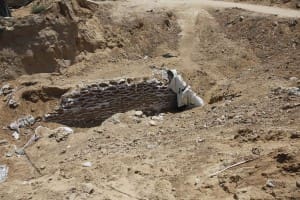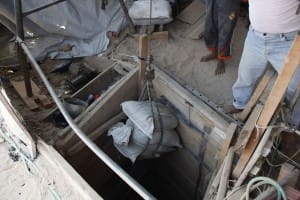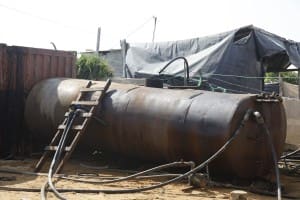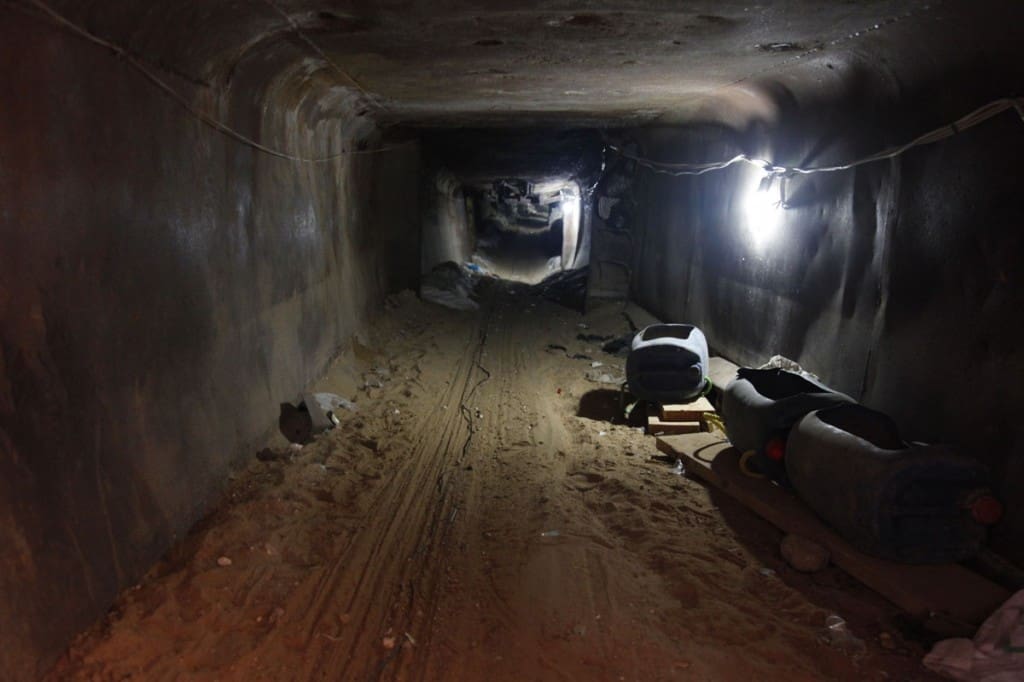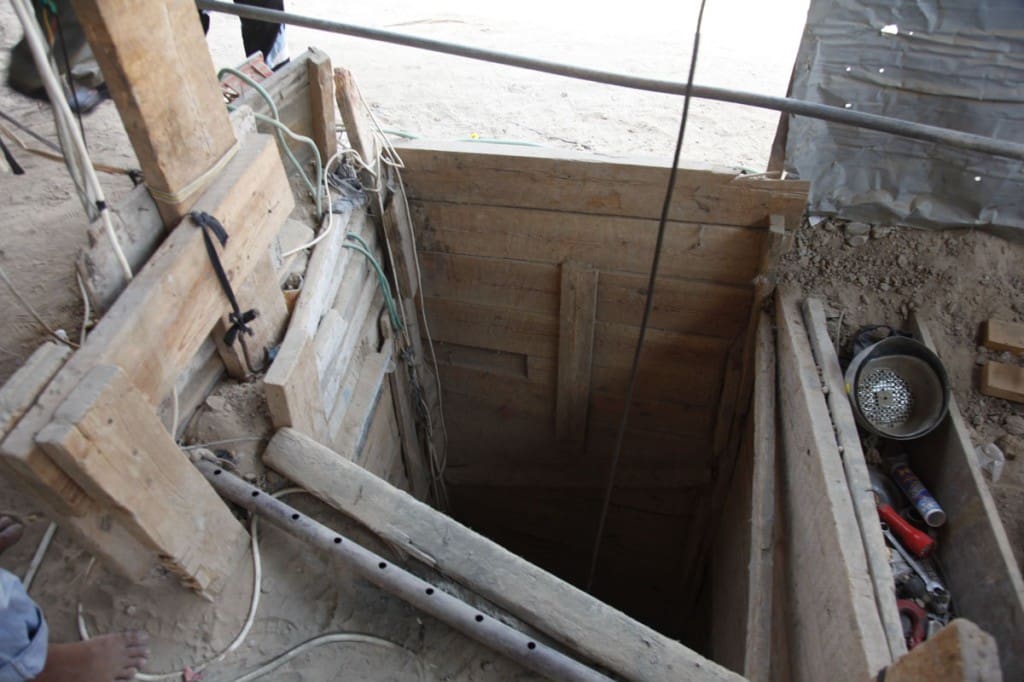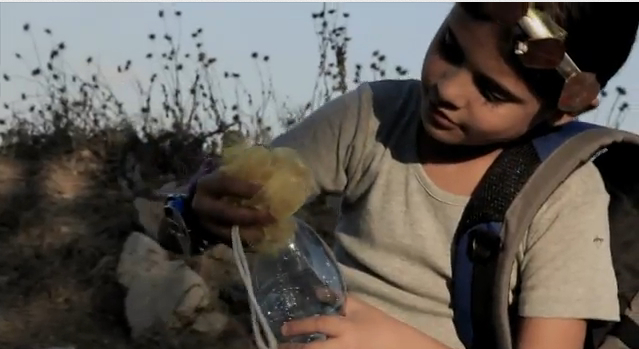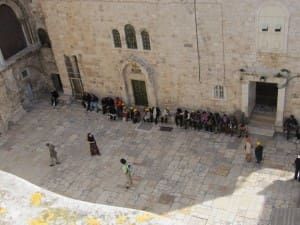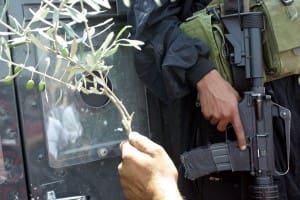My daughters look forward to summertime when they attend camp in the US. I want them to decompress from living under military occupation, and I guess I want to alleviate some of my guilt about all the extracurricular enrichment they don’t get during the school year. I invest quite a lot of time looking into options, coordinating schedules, and trying to make sure each girl gets the experience she wants.
This year, little, naïve me took the summer camp health forms to my pediatrician thinking I was nearly done with the summer camp preparation. Thank goodness they’re all healthy. It’s just a signature, an ink stamp, and a few minutes at the reception desk catching up with news about the secretary’s kids, right?
No! I entered into a uniquely Jerusalem surrealistic mess.
Dr. M is my fabulous, trusthworthy pediatrician. She is a Palestinian at a clinic in Arab East Jerusalem that is part of the Israeli HMO, Clalit, She said that my youngest daughter’s vaccination booklet wasn’t up to date. “Go to the school and have them write in the date they gave your daughter her second grade shots.”
The school seemed irritated. “You probably didn’t send in the vaccination book that day,” they told me, as if I was asking why the shots weren’t written down. “Okay, can you please write in the date she got the shots?” “We’ll call you.”
They finally called and said that the second graders didn’t get shots that year. “We write everything down and it’s not written down,” they said.
Dr. M said this wasn’t possible. Vaccinations are scheduled by the Israeli Ministry of Health. She told me to talk to the nurse in her office who works part-time doing vaccinations for the Ministry of Health. She’d be able to look up my daughter’s records and update the vaccination booklet with the date she took each of her second-grade vaccinations.
Nurse K told me to ask the school for the date. “But the school said there were no vaccinations given to the second grade that year.” “That’s not possible,” she said, and she gave me the mobile number of H, the woman in charge of vaccinations in the Palestinian private schools in East Jerusalem.
Meanwhile, I thought I must be going crazy, so I checked with several mothers with children in my daughter’s grade. “No, they didn’t get any shots that year.” I want to admit here that these are not easy conversations for me to have in Arabic, and add to that the fact that my question is very weird.
I called H. She checked and said that when they went to give the shots, the school told them (the Israeli Ministry of Health) that the Palestinian Authority’s Health Committees, had already done the second grade vaccinations. “Get the date from the school,” she told me. “It has nothing to do with us.”
“But the school says the vaccinations weren’t done.” I felt ready to cry.
H told me to get the vaccination booklet and she’d go over all the vaccinations to see what was missing. “The problem is,” she admitted, “that the Health Committees don’t document the vaccinations they give in the booklet. We’ve tried to speak with them about that, but ….”
From H’s review of my daughter’s vaccination booklet, it became clear that the US, Israel and Palestine not only have different schedules for giving vaccinations, but they also give different combinations of vaccinations.
“The important one you’re missing,” she told me, “is one you can only get from the Israeli Ministry of Health, not from your pediatrician. And the last day we’re giving it this year is on Wednesday.” She told me the name of the school in the Abu Tur neighborhood where the shots would be given. She gave me the name of the nurse who would be there to help me.
“Don’t worry that it’s not exactly the same vaccination you’re missing. It has something extra, something your daughter already has. But our regulations say that there is no danger of double dose for that one. You could take it today and again tomorrow and it wouldn’t matter. So don’t worry.”
I was worried.
So I went to the school. Telephones just don’t get across the same information as face-to-face meetings. Miss J checked the records again. “I could tell you that they usually come in second grade, and I could tell you that they did come to the second grade this year, but I can’t tell you that they came to the second grade last year when your daughter was in second grade, because I have no record of it and the secretary has no record of it – though we do keep those records because these are things that should not be done by memory.” That sounded reasonable.
She took it upon herself to call the Ministry of Health. She was satisfied with the explanation. Then she gave me O’s number so I could hear the explanation directly. O said: The Israeli Ministry of Health has always vaccinated the first grade, but only started vaccinating the second grade the year that my daughter was in second grade. But they didn’t do it that year because Markaz Nidal (called previously the Health Committees) had already given the second grade vaccinations when she was in first grade (but I thought the Israeli Ministry of Health was responsible for the first grade?). According to O, my daughter is up to date, but when I told her that H, who turns out to be her boss, already told me that my daughter was lacking the IPV or something or another, she decided to check again. I waited.
O now confirms that the Israeli Ministry of Health recorded that my daughter’s second grade class had already taken their vaccinations from Markaz Nidal (and they don’t write things down and no longer work in Jerusalem). The Israeli Ministry of Health would never record that without confirming since they are responsible. “Can I have the number of Markaz Nidal so I can confirm with them too?” “We don’t have any relationship to them or any contact with them,” she said. “So who did you confirm with?” “With the school!” “But the school says they were not vaccinated that year!”
I have a headache.
